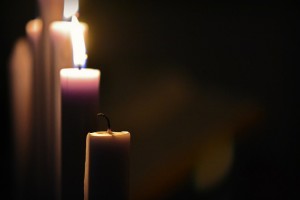One of my pastors likes to say, “Lent is a time to do more joyfully what we should be doing all the time.” That challenges me, because I naturally want to think of Lent as some kind of crash diet, a time when you give something up that you really love and it’s a great test of your willpower. Then, when you’ve gotten to the end of the sprint, you can go back to living exactly like before. And that’s usually exactly what I do.
But Lent, a season of fasting, sheds light on the rest of my life. In my current circumstances, I lead a life of plenty. There’s no reason for me not to indulge, and in fact, I’m encouraged to treat myself all the time, like it’s a holiday every day. There’s a reason we call this a consumerist society.
And also, of course, I just love overindulging all the time. I’m still young and there are few consequences to my physical body. I love the feeling of being overfull, secure in my plenty. I love new delights on my tongue and familiar comforts slipping easily down my throat.
Fasting is a shock to my system in every way.
My body, my mind, my culture all tell me, You can’t go a whole day without eating anything. You have to eat.
But Lent asks, Do you really?
Can God alone be your bread today?
And it makes me wonder if I can ask myself that moment to moment. If I can live with less so others can have more.
I’ve given up all animal products for Lent, for more reasons than one, but mostly because I know my consumption of dairy contributes to global warming, which is devastating for God’s creation and the materially poor.
I know it makes sense to drastically reduce, if not completely eliminate, dairy as a part of my diet for the long term, not just forty days. But I also miss butter and cheese and ice cream so much already. Even as I think aloud about making sweeping changes, it’s often with a heavy heart and (I’ll admit it) a whiny tone of voice. I don’t wanna give up my favorite stuff.
I’m tempted to look forward to Easter as the time when my life will go back to normal.
But here’s the thing: maybe my normal and Jesus’s normal are two very different things.
The Bible says that Jesus “became poor, so that you through his poverty might become rich.” I read that last night and I thought about how little I contemplate all that it meant for Jesus to become one of us.
Jesus was God, with all the power and glory that implies, but he became one of us. He humbled himself and became a being who existed in time, who was born and died. He endured every frustration in life that we do. He suffered sickness, exhaustion, and emotional pain. The closer he got to death, the more his suffering grew: betrayal, abandonment, misunderstanding, mockery, utter humiliation.
At times he wished there was another way to save us. But through it all, he wasn’t resentful. He was doing it for the love of poor people like us and through God’s love for him, and his loving heart shone through it all.
So that gives me a bit of perspective on my “sacrifices,” in and out of Lent. There’s nothing I can’t do with a loving heart, if I stay in the middle of Love and let it fill me.




